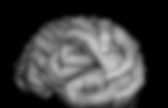

Rorty, non-foundationalism, and story telling: possibilities and problems. Bharath, 12 May 2009 I read your post on Rorty and found it very interesting and thought provoking. One question it raises for me is: If there is no difference between the realist and the anti-realist, then I take your (and Rorty's) position to be one of a humane skepticism, an embrace of a posture of not knowing so that various, less previlaged viewpoints are not suppressed under the rubric of falsity. This is a position I can understand and am sympathetic to. But it doesn't involve any radical sounding claim such as that we can/should give up on facts/truth/reality. If there is a difference between the realist and the anti-realist, then it seems the difference would be an obtuse, metaphysical one having to do with the nature of reality (one saying "there is truth!
" and the other saying "let us give up truth! "). All this leads to the following idea. My point though is that Rorty's position tends to be or to become UNPRODUCTIVE; that after a while it inhibits a flowering of stories. The Human Condition. Paul Grobstein Building the Scientific Mind Vancouver, May 2007 Overview: The Bipartite Brain as a Guide to the Scientific Mind All human feelings/thoughts/understandings/intentions about ourselves/our body/what's beyond are body are mediated/constructed by the nervous system .... are "stories". We have no direct access to "Truth" or "Reality" with regard to either.
Feelings/thoughts/understandings/intentions are different in different people, necessarily and desirably so. The nervous system can and does act on and learn from the world without "thinking", ie without "feelings/thoughts/understandings/stories". This is a valuable feature of our interactions with the world and each other; it supports both exploration and creativity. Getting It Less Wrong, the Brain's Way: Science, Pragmatism, and Multiplism Revisiting Science in Culture: Science as Story Telling and Story Revising Writing Descartes: I am and I can Think, Therefore ...
Empirical Non-Foundationalism. Paul GrobsteinEmergence working Group (with appreciation)12 December 2007 | overview| no unwobbling pivots | story | intersubjectivity | inquiry and emergence | | no unwobbling pivots | story | intersubjectivity | inquiry and education. Animal Mind Control. Scott Youtsey/Miracle studios A normally insatiable caterpillar suddenly stops eating. A quick look inside its body reveals the reason: dozens of little wasp larvae gnawing and secreting digestive enzymes to penetrate its body wall. They have been living inside the caterpillar for days—like little vampires, feeding on its “blood”—and are finally making their exodus to build their cocoons on its bright-green exterior.
In the caterpillar’s brain, a massive immune reaction is taking place—the invertebrate equivalent of a cytokine storm—and among the factors being released is an invertebrate neurohormone called octopamine. “It’s a very important compound for controlling behavior in insects,” says invertebrate behavioral physiologist Shelley Adamo of Dalhousie University in Halifax, Nova Scotia. But the parasitic larvae don’t stop there. “The real nuts and bolts have yet to be figured out for any system,” says Adamo. Pet cockroaches Fatal attraction Swim towards the light Suicidal insects. The Adaptive Function of Literature and the Other Arts. Massive Modularity vs. Cognitive Flexibility Evolutionists insist that genes constrain and direct human behavior.
Cultural constructivists counter that culture, embodied in the arts, shapes human experience. Both these claims are true, but some evolutionists and some cultural constructivists have mistakenly regarded them as mutually exclusive (D. S. Wilson, “Evolutionary”). Some evolutionists have either ignored the arts or tried to explain them away as epiphenomenal to the basic processes of life. In the early phases of EP, theorists seeking to counter the concept of the mind as a “blank slate” committed themselves to the idea of “massive modularity,” the idea that the mind operates almost exclusively through dedicated bits of neural machinery adapted to solve specific practical problems in ancestral environments.
In How the Mind Works (1997), Steven Pinker locates the arts within an EP conception of human cognitive evolution (524-43). The distinguished sociobiologist Edward O. Dissonance cognitive. Un article de Wikipédia, l'encyclopédie libre. En psychologie sociale, la dissonance cognitive ou distorsion cognitive au Québec[1] est la simultanéité de cognitions qui entraînent un inconfort mental en raison de leur caractère inconciliable ; ou l'expérience d'une contradiction entre une cognition et une action. Dans sa théorie de la dissonance cognitive, Leon Festinger étudie les stratégies de réduction de la tension psychologique induite et de maintien de leur cohérence personnelle, y compris des stratégies d'évitement des circonstances identifiées comme source de dissonance.
Relations entre les cognitions[modifier | modifier le code] Trois sortes de relations sont possibles entre deux cognitions ou entre une cognition et un comportement[1] : Ampleur de la dissonance[modifier | modifier le code] L'ampleur de la dissonance cognitive ou de la tension subie dépend de deux facteurs : L'effort pour réduire la dissonance est proportionnel à son ampleur[1]. Exemples[modifier | modifier le code] Brain size and evolution - complexity, "behavioral complexity", and brain size. From Serendip Organisms have indeed gotten more "complex" over evolutionary time, at least on a broad scale Organisms differ in "behavioral complexity" Organisms differ in brain sizeThere is some relation between "behavioral complexity" and brain size, but humans do not have the largest brains. There is a better relation between "behavioral complexity" and brain size in relation to body size. from Harry J.
Jerison, Paleoneurology and the Evolution of Mind, Scientific American, January, 1976 Why should such a relation exist? I'm still more interested in whether there is life on Mars?.